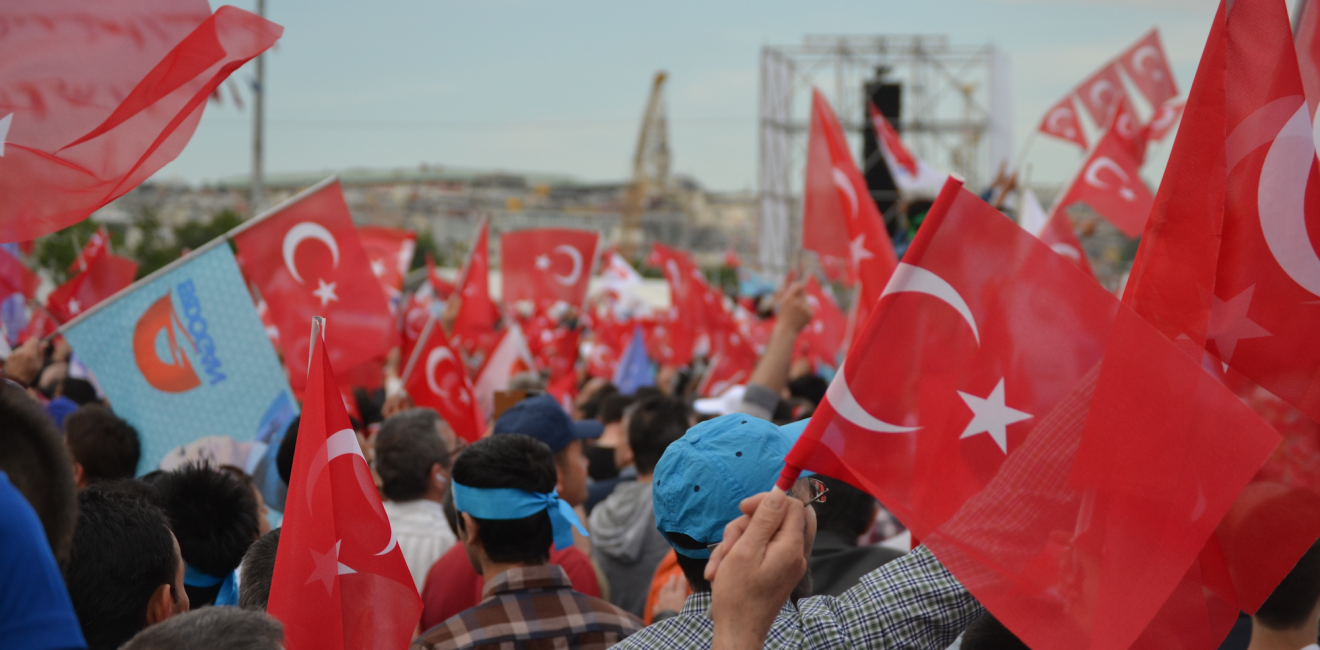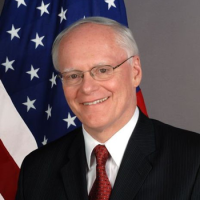Turks will vote in national elections May 14 for both a president and a new parliament in two separate contests on the same day. Analysts are hyping this election as crucial to the “legacy” of current President Recep Tayyip Erdogan, who has held office (either as President or Prime Minister) for twenty years. Rarely has an election been watched more closely in the United States, Europe, Russia, and in the region. It shows Turkey’s critical importance on the world stage—particularly now, with war in Ukraine and continuing tension with Iran in the Middle East.
Why it matters
President Erdogan, despite questionable monetary policies in the face of high inflation in recent years, is credited with much of [Turkey's] economic growth.
Turkey has expanded its economic strength and diplomatic-military clout enormously in the past forty years. A strong entrepreneurial class, a customs union with the European Union, and growing trade ties with the United States have fueled its growth to the 20th largest economy in world by GDP in 2022. President Erdogan, despite questionable monetary policies in the face of high inflation in recent years, is credited with much of this economic growth.
To be sure, Turkey usually runs a trade deficit, which is heavily impacted by its energy product imports, long dominated by Russia and Iran—putting Turkey not only financially but politically under the influence of two traditionally hostile neighbors. Recent diversification of energy imports (including significant LNG from the United States), coming exploitation of Black Sea gas reserves, and the coming-on-line of its first nuclear reactor will significantly improve Turkey’s energy independence and terms of trade.
But it is with muscular diplomacy that Turkey has made its mark over the past 30 years, following then Prime Minister Turgut Ozal’s decision, over military objections, to support US-led Operation Desert Storm against Saddam Hussein’s invasion of Kuwait. With the second strongest conventional military forces in NATO, Turkey has been vital in all NATO operations in the Balkans and broader Middle East (except Libya), has played major roles containing Iran and Russia—especially during the Ukrainian war – and operates against ISIS and the Assad regime in Syria.
That said, President Erdogan’s often harsh criticism of the West, human rights violations, and a decade-long courting of Islamist movements in Libya, Sudan, Egypt, and Syria, including Hamas, alienated Ankara from conservative Arab states and Israel, who were previously on friendly terms with Turkey. In recent years, Erdogan has patched up relations with them, much to Washington’s relief. But bilateral frictions with the United States remain, stemming from the unwise purchase of a Russian S-400 missile system and subsequent removal from the US F-35 fighter program, in addition to differences over policy in the eastern Mediterranean, Aegean, Caucasus, and regarding the PKK-associated YPG, renamed Syrian Democratic Forces (SDF) in Syria.
Finally, with the exception of Israel and Lebanon, Turkey is the only long-term democratic state in the region, and the future of the state as a democracy is of great importance to the peoples of the region as well as to Europe and the United States.
State of play
The presidential race is neck and neck, with latest polls showing both Erdogan and his primary challenger, Kemal Kilicdaroglu, in the mid-40 percent range. Kilicdaroglu leads the traditional center-left Republican Peoples Party (RPP), known as “Kemalist” as the party was formed by Mustafa Kemal Ataturk. A third presidential candidate, Muharrem Ince, will likely not gain many votes but could throw the election for the presidency into a second round.
The largely Kurdish Peoples Party, has now formally committed to have their voters—the third largest grouping with usually over 10 percent of the electorate—select Kilicdaroglu.
Based on my own unscientific survey of Turks on a recent trip, this election is still up for grabs. Opposition coalition leader Kilicdaroglu is seen as inexperienced and, at least by some, as weak; his six-party, right-left coalition is unlikely to provide a strong government. (Turkish governing coalitions generally rouse bad memories compared to single party or single leader rule). Importantly, a seventh party, the largely Kurdish Peoples Party, has now formally committed to have their voters—the third largest grouping with usually over 10 percent of the electorate—select Kilicdaroglu.
Erdogan, however, has done significant damage to his own reputation for competence given the sorry state of the economy and his earthquake response. And even some of his supporters say they are unhappy with his party’s junior coalition partner, the traditionally hard line nationalist National Action Party, claiming it has largely infiltrated the security services, especially the police. Some religious Kurds who support Erdogan are particularly unhappy with the National Action Party; their traditional support for Erdogan could fade.
One almost unconscious factor favors Erdogan. Turks are well aware of what he has done for society (particularly the more traditionally Muslim middle and working classes) and for the overall economy over the past 20 years. Whatever their views on his policies, they acknowledge him as a strong leader in a region, and time, when strength is important. On the other hand, rulers tend to do less well as they remain in office after decades, and his domestic policies, growing authoritarian rule, and economic and earthquake management have hurt him.
But elections (especially this one) are often not about reasoning so much as feeling and instinct. The adjectives attributed to Erdogan—“strong” and “overall successful”—are hard for a challenger, especially Kilicdaroglu, to dismiss.
Relations with the United States
There is a good chance that whoever wins will improve relations with the West. Kilicdaroglu supporters argue that on foreign policy he will listen to the professionals, known for their competent realpolitik, and will certainly tone down the anti-Western rhetoric often used by Erdogan. But they uniformly assert that most of Erdogan’s policies, especially in the near abroad (Greece, Russia, Iran, Iraq and Syria, the Caucasus, and Ukraine) will likely continue.
One concern is Kilicdaroglu’s seeming enthusiasm for rapprochement with the Assad regime and for a concerted effort to repatriate Turkey’s three million Syrian refugees (hosting them has been one of the major pluses of Erdogan’s foreign policy). In response, Erdogan has opened Russia-brokered discussions with the Assad regime. Nevertheless, there is still skepticism about a real rapprochement with Assad by either Kilicdaroglu or Erdogan, given Assad’s unwillingness to compromise. But there is also a popular feeling that the three million Syrian refugees need to eventually return home.
Washington remains disturbed by Erdogan’s S-400 purchase, but that decision has led to no further purchases of Russian arms to Turkey or to other NATO allies.
There are also some indications that, were he to win, Erdogan would improve relations with the United States. His current trajectory—rebuilding relations with regional states, decisive (if incomplete) support for NATO positions on the Ukraine conflict, and a partial thaw in sometimes chilly relations with Washington—points in that direction. Washington remains disturbed by Erdogan’s S-400 purchase, but that decision has led to no further purchases of Russian arms to Turkey or to other NATO allies. Turkey is now pressing for a huge F-16 purchase; Congress, however, has linked its approval to Turkey’s support for Sweden’s NATO membership.
Frictions and bilateral repercussions regarding Syria policy continue. From Washington’s perspective, Turkey’s provocations include military attacks against its Syrian allies in the fight against ISIS, the SDF; Ankara, in turn, is provoked by continued US support for the PKK-linked group. Nevertheless, the overall arrangement in northeast Syria, to which Washington and Ankara agreed in late 2019, is still holding: US troops and their allies continue suppressing ISIS, and Turkey directly and with its Syrian opposition forces allies have also ramped up efforts against it, claiming the killing of the last two ‘caliphs’ of the organization.
…And with Europe
Despite who wins, European leaders will have one overarching concern: will Turkey stick to its agreement on refugee flows from Syria? Having taken in eight million Ukrainian refugees since Putin’s invasion, Europeans can ill-afford another migration crisis. Refugee flows from Syria in 2015 had a significant impact on Europe’s politics; leaders will want to avoid a repeat.
NATO allies will also push for Sweden’s accession before the July Vilnius Summit (but perhaps not with equal vigor). However, on other issues, it will be harder for European leaders to find a common position. While welcoming Turkey’s engagement to free up grain shipments from Ukraine, its success has had consequences for individual European countries.
With energy security high on Europe’s agenda, they will focus on Turkey’s role in the Eastern Mediterranean and Black Sea region.
Despite knowing the importance of food security for the developing world, each country also has domestic constituencies to answer to. And with energy security high on Europe’s agenda, they will focus on Turkey’s role in the Eastern Mediterranean and Black Sea region. European leaders will be preoccupied with these near-term questions; the eventual course of Turkey’s EU accession will be (as usual) pushed to the back burner.
Election scenarios
Some opposition figures and outside commentators informally have warned of possible interference during or after Election Day, similar to that seen in the United States after the 2020 election. Certainly, after twenty years of rule, President Erdogan will do all in his power to stay in office, including (as with close Istanbul elections a few years ago) even demand a new election if results are uncertain.
Anything is possible given the complexity of Turkish politics, as seen in the bloody 2016 coup by the Islamist Gulenist movement against its former ally, Erdogan. Nevertheless, the Turkish people, judging from traditionally high turnout rates of 80-90 percent, have shown a commitment to democracy since 1950. This election will be a test of that commitment.
The views expressed in these articles are those of the author and do not reflect an official position of the Wilson Center.







